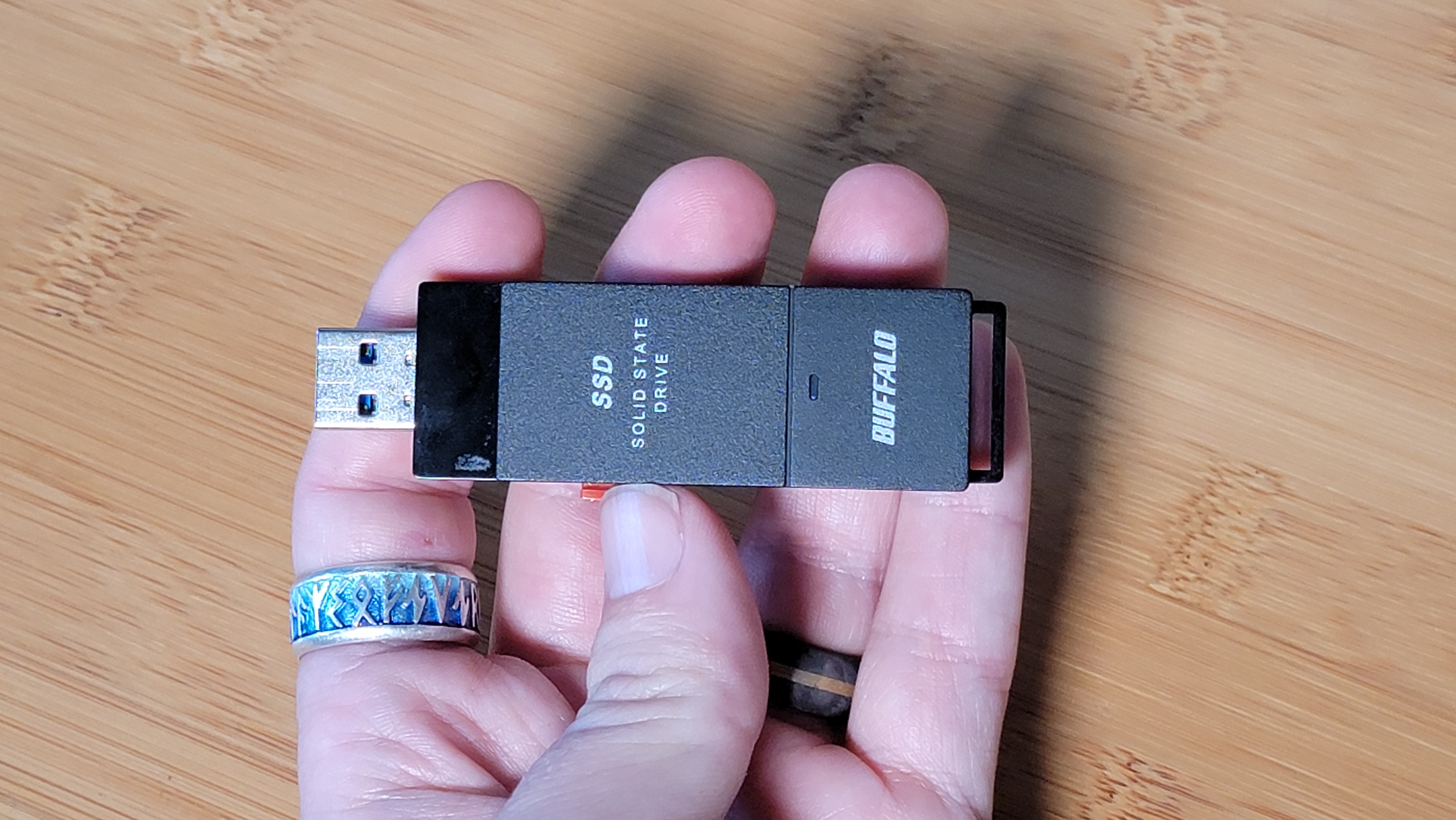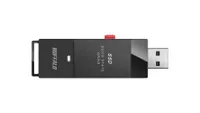My favorite flash drive returns to its all-time low price – It's time to upgrade
Yes, Virginia, 2TB flash drives are real — and surprisingly affordable.

Sure, fake high-capacity flash drives and SSDs tend to grab the headlines, but there are also roomy flash drives out there that are legit. One drive that definitely isn’t fake is our favorite flash drive, Buffalo’s SSD-PUT. It currently occupies the top spot on our Best Flash Drive page thanks to its balance of performance and price. And right now it’s as affordable as it's ever been, down to just $92 for the 2TB model. And the 1TB model is on sale for a pretty sweet $56. You can also pick up the 500GB model for a discounted $40. But most people should probably spend the extra $16 to double their storage space.
Buffalo SSD-PUT (2TB): was $125, now $92 at Amazon
In our testing, Buffalo’s SSD-PUT delivered read speeds above 600MB/s and write speeds close to 550MB/s. That, combined with its current sub-$100 price makes this thumb drive a steal.
Buffalo SSD-PUT (1TB): was $120, now $56 at Amazon
If you don’t need 2TB of space, the 1TB Buffalo SSD-PUT flash drive is a great option at its current sale price of $56.
Buffalo SSD-PUT (500GB): was $50, now $40 at Amazon
You can pick up this 500GB model for $40, but note that the 1TB version is just $16 more for double the storage.
As our testing shows, Buffalo's SSD-PUT doesn't lead the pack in terms of flash drive speed. But it's still fast for a flash drive, easily topping 500MB/s, while costing significantly less than the fastest drives. Transcend's ESD310C is consistently faster, but it's currently more than $50 pricier for the 2TB model than the 2TB SSD-PUT. That makes Buffalo's drive an easy winner for most people. Because if you really need speed, you should opt for one of the best external SSDs instead of a flash drive.
Get Tom's Hardware's best news and in-depth reviews, straight to your inbox.
After a rough start with the Mattel Aquarius as a child, Matt built his first PC in the late 1990s and ventured into mild PC modding in the early 2000s. He’s spent the last 15 years covering emerging technology for Smithsonian, Popular Science, and Consumer Reports, while testing components and PCs for Computer Shopper, PCMag and Digital Trends.

